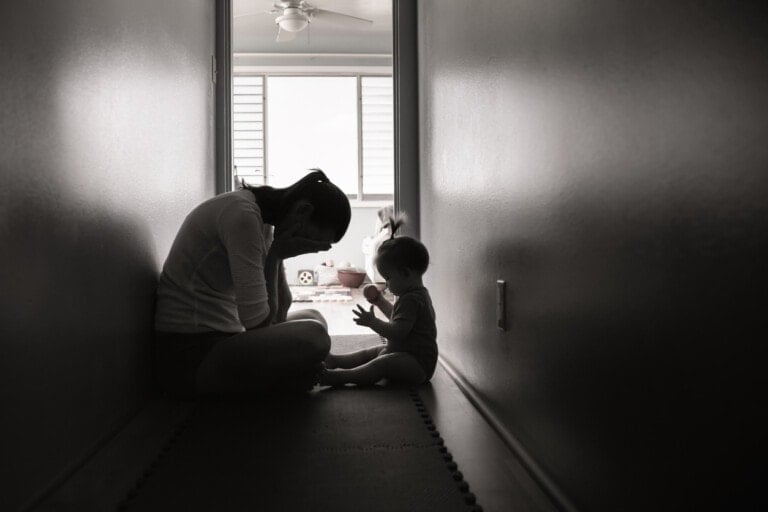From the first moment you choose to be a mother or realize you are a mother, you instinctively want to succeed. Your subconscious drives you to make decisions that offer the best care for your babies and children, but you’ll almost inevitably ask: “Am I a good mother?”
Unfortunately, no single instruction book teaches us how to be good mothers or provides a specific set of strategies or tools that fit every unique family. We can’t even parent the same way to each child in our household or the same child on different days! How can we ever feel like good mothers when so many factors, circumstances, and situations exist?
There is hope! The following guidelines come from decades of research into emotional intelligence, brain development, and interpersonal neurobiology.1,2,3
5 Tips for How to Be a Good Mother
Understanding these fundamental drivers provides the keys to unlocking the mysteries of quality parenting.
1. Overcome Guilt by Practicing Self-Forgiveness
Guilt is a powerful emotion. Brené Brown describes guilt as feeling like “I did something bad,” with a particular focus on our behavior. Every day brings new challenges, and if we think our response was “wrong,” we feel guilty. If we don’t do enough, we feel guilty. If we don’t do it like someone else, we feel guilty. Or, if we get stuck in feeling guilty, we feel self-centered and, therefore, guilty.4
Guilt causes us to become doubtful and insecure, which does nothing to help us make good decisions. Remind yourself at those times that guilt is a temporary feeling, not a defining trait, and start processing it by telling someone you trust about it to get it out in the open.
To overcome guilt, practice self-forgiveness. Imagine your friend makes a mistake: they acknowledge it and apologize, and you forgive them and move on. It seems simple, but it’s the same process we deserve to give ourselves—that we must give ourselves to move on from a mistake with confidence. Offer yourself the same level of compassion you would offer to your friend. Visualize your guilty self standing opposite you and speak to her lovingly: “I understand you. I forgive you.” The more frequently you practice this, the quicker you’ll be able to move out of guilt and into action. Too abstract? Too uncomfortable? Try a guided meditation to get started.
2. Recognize Your Core Needs and Make a Plan
Did you know our emotions arise not from our environment but from our needs? We experience “positive” emotions when our needs are met and “negative” emotions when our needs are unmet. Ever wonder why it can be hard to muster all the patience, kindness, and affection you want to offer your child? There’s a good chance your own needs aren’t being met, which means you don’t have your full emotional capacity to parent at your best.1
Humans have core needs, and you must know what they are to meet them. These include physical needs like nourishing food, movement, rest, and safety; personal needs like autonomy, integrity, meaning, and creativity; and finally, needs for connection, which can mean acceptance, appreciation, community, or understanding2. We have to take charge of meeting these needs; no one else is responsible.
Fortunately, taking responsibility does not equal doing it all by yourself. It does mean making an action plan and inviting support from others. That could be requesting your partner take charge of dinner two nights this week, asking a neighbor to watch your baby for an hour while you focus on a project, or teaching your older children to do some simple chores (even if they aren’t done exactly as you expect). You will experience your fullest potential as a mom and human when actively seeking support. Mothering is hard work; you must care for yourself to do it well.
3. Hold Reasonable Expectations for Your Child
Many parents read a library of books about the newborn phase, but to not trap our children in unrealistic expectations, the learning must continue. Educating yourself as your child moves into different stages will help you know what to expect at each age. While every child is unique in personality and temperament, there are consistent developmental stages in infants, toddlers, school-age children, teens, and young adults. Adjusting your expectations with your child’s growth will ease frustration for everyone.
You can reframe difficult behavior from any child with strategies that offer empathy. First, make an observation: “My child is having a hard time, not giving me a hard time.” We mistakenly take behaviors personally and then react with our toughest defense. We are more likely to respond with compassion when we view our children with empathy. Second, ask yourself, “Is it that my child won’t do this, or could it be that my child can’t do this?” If you’re unsure, ask your child’s pediatrician or teacher for resources to understand your child’s developmental stage and how to support them best.
4. Expect Challenges and Prepare to Repair
Why is parenting so hard in the first place? We are human, our children are little humans, and life happens. Managing everyone’s needs, desires, external circumstances, and all the unexpected situations that life brings is a daily demand. Viewing parenting as a process rather than a destination can give you the flexibility to face challenges and repair damage.
It turns out that you can raise happy, healthy kids without everything going well all the time. Just as we learn to walk by tumbling down, we learn how to be authentic by making mistakes in our relationships and repairing them. Parents are meant to be the safe zone for our children, but sometimes, we cannot do that. We may even become scary, threatening, or absent, and our children may feel hurt as a result. These are opportunities for repair. This is when we show vulnerability, take responsibility for our mistakes, and reconnect as we repair the relationship. As Daniel Siegel and Tina Payne Bryson state in The Power of Showing Up, “. . . the key is repair, repair, repair. There’s no such thing as perfect parenting.”
5. Celebrate With Your Child
At the end of the day, how do you want your children to feel about themselves? How do you want them to remember you? Childhood is all about play, and motherhood can include being playful. We can act silly, be lighthearted, let down our guard, and allow ourselves to have fun with our kids. It’s not about entertaining or putting on a show but joining children in their curiosity, creativity, and fantasy.
It also doesn’t need to be constant! It’s part of the process and something to infuse into little interactions and embrace in little moments. Notice what makes your child giggle, then join in to keep it going. Become aware if tension is building, then lighten the mood with some silliness. Children don’t need to grow up, toughen up, or hush up. They deserve to pretend, imagine, and explore during this precious and fleeting time in their lives.
Let’s return to that nagging question: “Am I a good mother?” How do you know if you really are a good mother? What if you can’t do all these things? What if every day is still a struggle? The measuring stick isn’t what any expert says, what your parents expect, or even what your children do or who they are. How can you be a good mother? You’ve asked yourself the question, and that means that you are. You have the awareness, desire, and intention to be a good mother. That is what it takes. You have always been a good mother, even if you don’t believe it. You are the perfect mother for your child.































